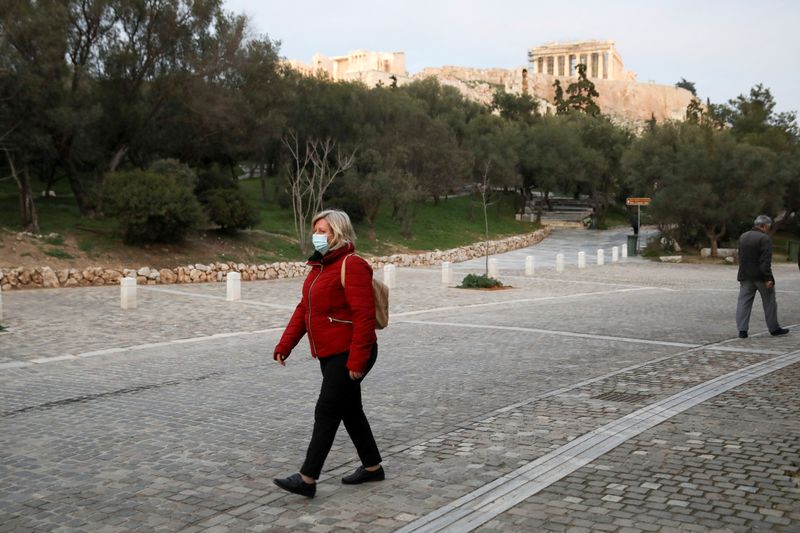ATHENS (Reuters) – Greek Prime Minister Kyriakos Mitsotakis called on Tuesday for the creation of an EU-wide, COVID-19 vaccination certificate to help restore cross-border travel that has been crippled by the coronavirus pandemic.
Greece, which relies on tourism for a fifth of its economic output and is keen to revive travel before the summer season, has already created its own standardised certificate to prove an individual has been vaccinated.
In a letter to European Commission President Ursula von der Leyen, Mitsotakis proposed extending the scheme to the entire 27-nation European Union. The certificate could be used when embarking on all forms of transport.
“While we are not going to make vaccination compulsory or a prerequisite for travel, persons who have been vaccinated should be free to travel,” he said in the letter.
“(It is) urgent to adopt a common understanding on how a vaccination certificate should be structured so as to be accepted in all member states,” Mitsotakis added.
The European Commission confirmed receiving the letter and said it was awaiting an online meeting of EU leaders on January 21 on this and other vaccine roll-out issues before replying.
EU leaders agreed in December that the bloc should coordinate on vaccination certificates, with health experts already meeting to discuss technical specifications, such as how to put it in digital form.
However, EU governments still need to give a clear political steer. France, for example, does not want travel within the bloc to be dependent on a vaccine certificate.
The difficulty in agreeing a common EU digital Passenger Locator Form (PLF), established last year to try to track travel movements, has shown that there is a strong need for a high-level EU effort to move things forward, Mitsotakis said.
If EU states can agree a common formula “we can then push the issue forward in the relevant international fora, thus contributing to the re-establishment of mobility on a global scale,” the letter said.
“For countries such as Greece, which are dependent on tourism, it’s imperative that this issue is resolved before the summer season.”
Greece weathered the first wave of the pandemic relatively well but a surge in cases since October has badly strained its health system, weakened by a decade-long financial crisis, prompting authorities to order a second lockdown in November.
Greek authorities have so far confirmed 145,179 cases of COVID and 5,302 related deaths.
(Writing by James Mackenzie with additional reporting by Philip Blenkinsop in Brussels; editing by Gareth Jones and Mark Heinrich)

























